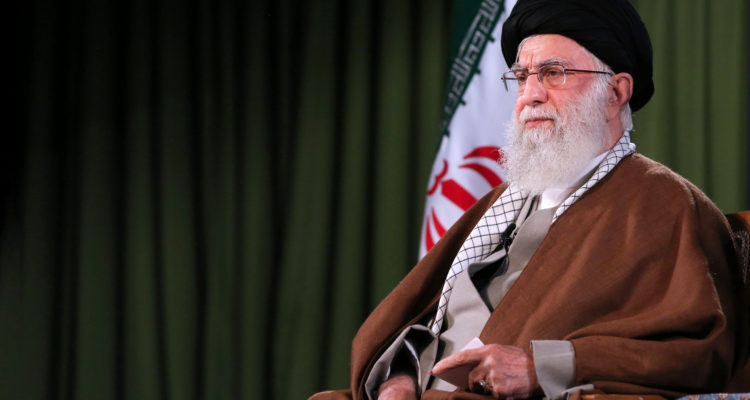This elephant has a genetic tendency to go rogue.
By Amir Taheri, Gatestone Institute
As the new year begins, think tanks and policy circles start buzzing with ideas about “the future” of Lebanon, Syria, Palestine, Yemen, in short, the Middle East.
Some futurologists prefer to talk of a “new Middle East” made possible by the “liberation” of Syria, the near annihilation of Hamas and the serious downgrading of Hezbollah and the Houthis.
All this is happening in a feel-good context as policy wonks have decided that in a region that hasn’t known good news for decades if not centuries, one should be content with news that is “less bad”.
Thus, the fall of the Butcher of Damascus is news that is less bad rather than good because, despite Ahmad al-Sharaa’s trimmed beard, silk necktie and Colgate smile, no one knows where the new rulers might be heading.
One has to agree that “less bad” is better than no good.
Compared to what happened in other “Arab Spring” countries, what is unfolding in Syria may appear reassuring. Unlike in Libya, while instruments of state repression have been destroyed, the Syrian state structures have not totally collapsed.
Thus, there is hope that, once reformed, they could prevent Syria from becoming another ungoverned territory.
Syria may also avoid what happened in Iraq where the brutal disbanding of the regular army and police and hasty de-Baathification created deep-rooted resentment that in turn generated violence and war.
Unlike in Tunisia, Syria may not face the threat of a radical Islamist challenge, if only because the new rulers are themselves “lite” versions of that ideology. And unlike Egypt in “Arab Spring” days, Syria doesn’t have a well-organized army to counteract by drawing red lines.
Right now, at least 60 nations are directly or indirectly interested in the hoped-for “new Middle East”. Some like Russia, Turkey, Israel and the United States are militarily present in that country, while others like Jordan have a national security interest in what may happen there.
Egypt and the GCC countries are also keenly interested for political and security reasons. Despite its current problem with leaderlessness, the European Union is also concerned for a number of reasons, including the future of millions of refugees whose presence is causing tensions across the EU.
Increasingly dependent on Middle East oil, China, Japan, South Korea and Taiwan are also hoping to secure a ticket on the promised gravy train, while India, in its intensifying competition with China, won’t stay a bystander.
Some multinational giants are already licking their lips in anticipation of juicy contracts generated by the rebuilding of a devastated region.
All that is well and good, but the fact remains that the current rush to brainstorm on the future of the Middle East ignores the geopolitical aspect of this complex situation.
That in turn is symbolized by the elephant in the room: Iran. True, Iran’s Khomeinist regime was thrown out of Syria and all but ran away from Lebanon in a most humiliating manner.
It is also true that those who look for solutions to the region’s myriad of problems have no desire to see the trouble-making elephant as a participant in problem-solving.
The problem is that the elephant all wish to ignore is a big one. Right now it is a wounded beast, barely standing, not trying to grand-stand. But thinking of the “new Middle East” isn’t concerned with today alone, and would have no meaning if it doesn’t envisage tomorrow and the day after tomorrow.
This elephant has a genetic tendency to going rogue.
In an editorial last week, Iran’s daily Kayhan, reputed to reflect the views of “Supreme Guide” Ali Khamenei, dismissed “the recent problems our revolution has faced in Syria and Lebanon” as “minor hurdles on a glorious path to total victory.”
Paraphrasing Arnold Schwarzenegger from the film “The Terminator,” Brigadier-General Mohammad-Reza Naqdi, deputy chief of the Islamic Revolutionary Guard Corps, said: “We left Syria because Assad was no longer worth supporting. But we will be back!”
Anyone familiar with Iran’s history under the theomaniacal system created by Ayatollah Ruhollah Khomeini would know that the regime has faced a dire choice from the start: become like the rest of the Middle East, or make a whole Middle East like itself.
Over the past five decades, numerous efforts were made by the United States, the European Union, the GCC countries, Japan, and even Russia and China to persuade the Khomeinist leadership to subscribe to the “if you can’t beat them, join them!” mantra, but failed to make the mullahs move in that direction.
The rogue elephant is the region’s second-largest beast in terms of population, territory and the size of its economy. It is also unique in the world in terms of experience in asymmetrical warfare, hostage taking, terrorism and corrupting the elites of weaker neighbors with suitcases filled with crisp greenbacks.
For almost 30 years, the ruling clique in Tehran literally took the bread out of the mouths of Iranians to feed “resistance” fighters in Iraq, Syria, Lebanon, Gaza, Yemen, and other places.
Last week, the British police raided two London “charities” linked to Iran and used for money-laundering to finance fake opposition groups and recruit Muslim youths for careers in “resistance” politics. Similar “charities” have also been raided in Germany, France and Belgium.
Policy wonks in the room would ignore the elephant at their peril.





